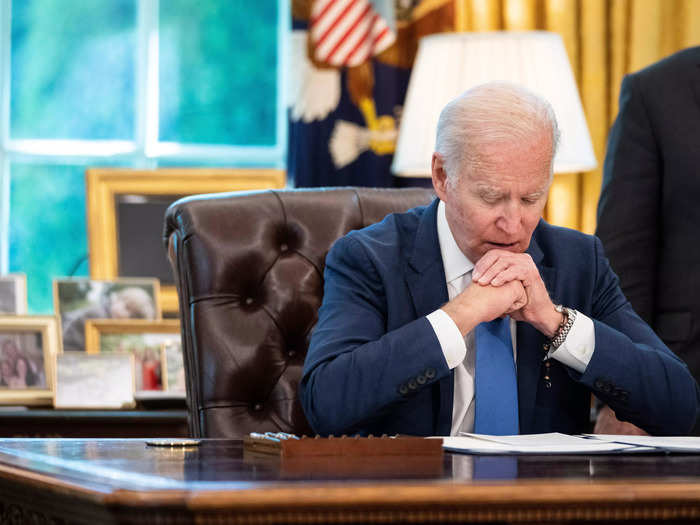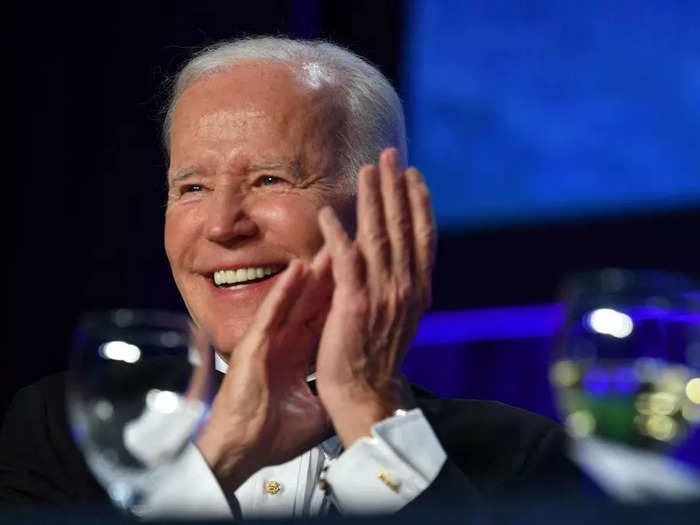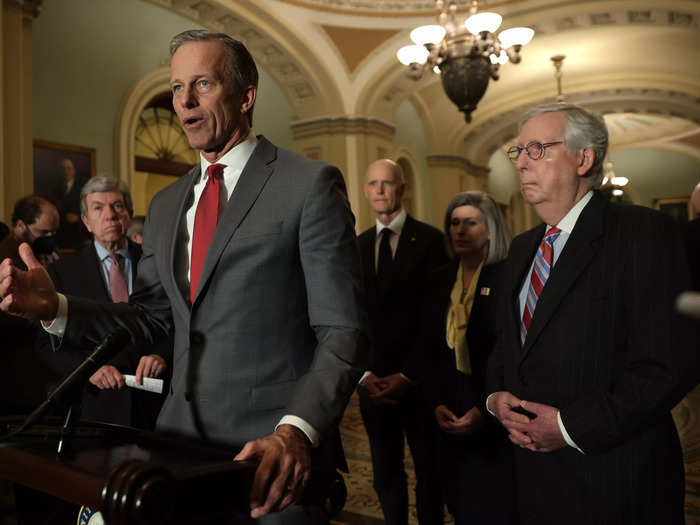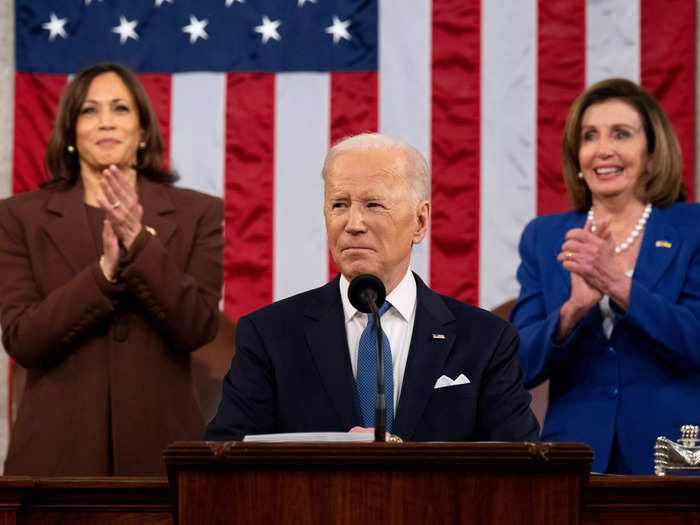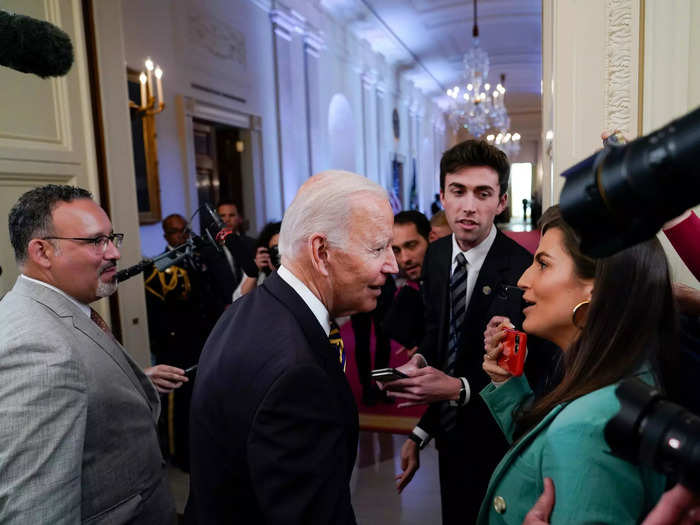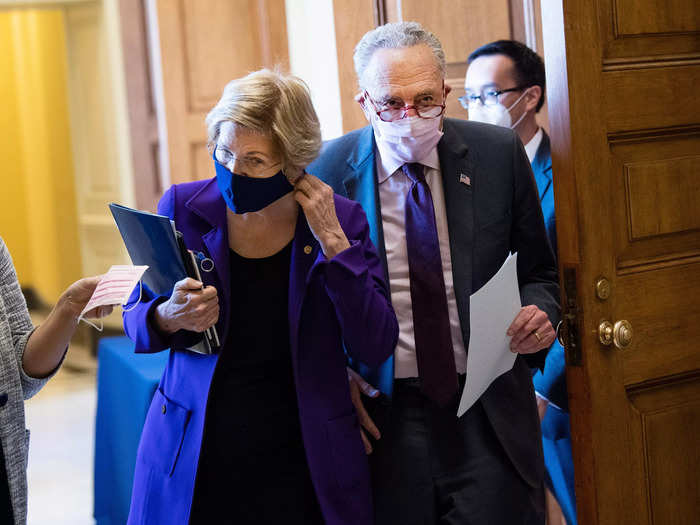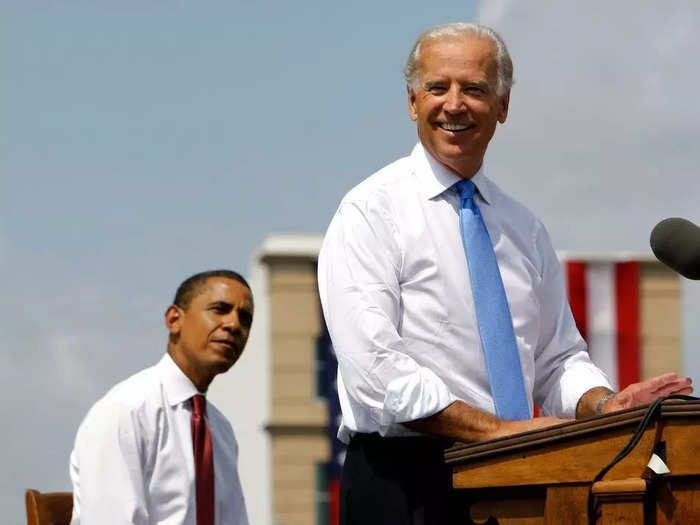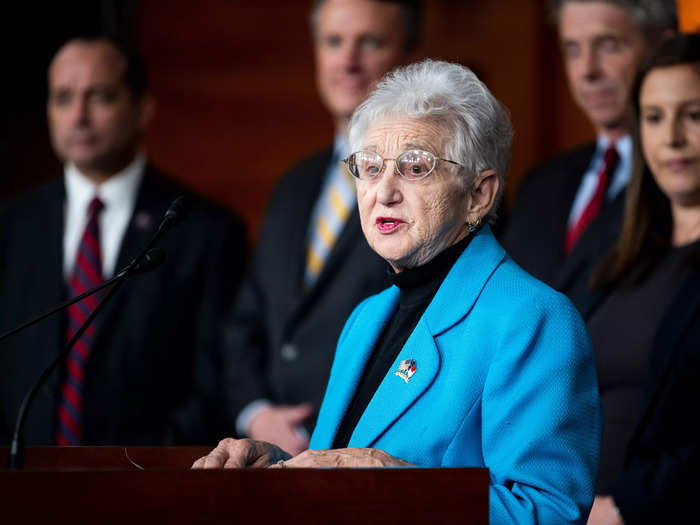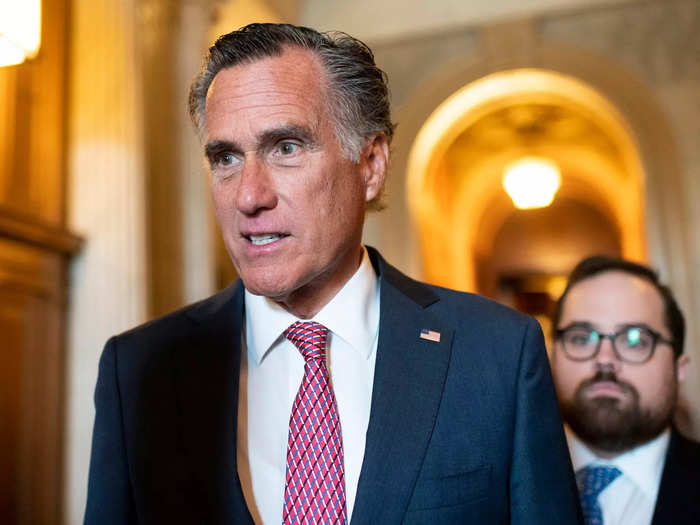President Joe BidenAP Photo/Carolyn Kaster
- Pressure has been mounting for Biden to cancel student debt, as he pledged during his campaign.
- Last month, he said his decision on relief would come in a matter of weeks.
Despite President Joe Biden's campaign pledge to cancel $10,000 in debt per borrower, he's been largely silent on the issue through his presidency.
But there may be a light at the end of tunnel for more than 40 million Americans with federal student loans.
In late April, Biden said he'd "have an answer" on relief in the coming weeks. That was a year after Biden asked the Department of Education to prepare a memo outlining his legal power to cancel student debt. Insider found that the Education Department created and circulated the memo, but Biden has not revealed its contents.
Instead of relief for all borrowers, so far, Biden has focused on targeted groups like borrowers with disabilities and those defrauded by for-profit schools, who have seen more than $9 billion in collective debt relief. He also extended the pandemic pause on student loan payments four times since taking office, following two from former President Donald Trump.
Democrats are pressuring him to relieve borrowers in fear of low midterm turnout, with some progressives urging him to cancel at least $50,000 for those in debt. Meanwhile, Republicans senators have introduced bills intended to prohibit cancellation.
Biden's approval rating among the young people who helped get him elected is tanking. With the payment pause set to expire after August 31, Americans are on pins and needles to find out what Biden will do.
Here's everything we know so far.
In April, Biden said he would announce a decision or extend the payment pause by September, when the current payment pause is up.
President Joe Biden speaks to reporters in the Oval Office of the White House on May 9, 2022. Drew Angerer/Getty Images
In April, Biden gave himself until the end of August to announce a decision regarding student debt cancellation, or to extend the payment pause he'd already continued four times.
"Between now and August 31, it's either going to be extended again or we're going to make a decision, as Ron referenced, about canceling student debt," White House Press Secretary Jen Psaki told Pod Save America referring to Ron Klain, Biden's chief of staff, who also told the podcast in March that leading up to the prior May 1 payment restart date, the president would either extend the pause again — which he did — or decide how he could act on student debt using executive action.
Later that month, Biden shortened his own timeline, saying he'll 'have an answer' on student-loan forgiveness in the coming weeks.
President Joe Biden laughs during the White House Correspondents' Association dinner in Washington, DC, on April 30, 2022. NICHOLAS KAMM/AFP via Getty Images
Since Psaki revealed the end-of-August deadline, Biden truncated the timeline for the announcement to be a few weeks from April.
"I'm in the process of taking a hard look at whether there will be additional debt forgiveness," Biden said at the end of the month. "And I'll have an answer for that in the next couple of weeks."
Republicans introduce their first bill to bar Biden from cancelling debt broadly.
Sen. John Thune alongside Senate Minority Leader Mitch McConnell at a news conference. Alex Wong/Getty Images
Following Biden's hints that an announcement on forgiveness could be coming soon, GOP Sens. John Thune, Richard Burr, Mike Braun, Bill Cassidy, and Roger Marshall introduced the Stop Reckless Student Loans Action Act, which would end the payment pause and bar Biden from canceling student debt broadly.
"As Americans continue to return to the workforce more than two years since the pandemic began, it is time for borrowers to resume repayment of student debt obligations," Thune said in a statement. "Taxpayers and working families should not be responsible for continuing to bear the costs associated with this suspension of repayment. This common-sense legislation would protect taxpayers and prevent President Biden from suspending federal student loan repayments in perpetuity."
Shattering progressives' hopes, Biden confirmed in April that he won't be forgiving $50,000 in debt per borrower.
President Biden at State of the Union. Saul Loeb - Pool/Getty Images
Democratic senators such as Chuck Schumer and Elizabeth Warren have made it clear that for many progressives, $50,000 in forgiveness per borrower is the number to strive for.
"Canceling $50,000 of student-loan debt would give 36 million Americans permanent total relief," Warren said during a town hall in January. "That would be the end of their debt burden. And it would aid millions more by significantly reducing the principal on their debt."
But at the end of April, Biden shattered progressives' hopes, saying that although he is considering debt forgiveness as promised, it will not be for as high as $50,000 per borrower.
"I am considering dealing with some debt reduction, I am not considering $50,000 debt reduction," he told a reporter last month. It marked one of his most decisive comments to date on what he is considering when it comes to canceling student debt broadly.
Biden considers excluding high earners from debt relief, possibly excluding people who make more than $125,000 or couples making $250,000.
Biden considered income caps on student debt relief while on the campaign trail, but that may not be what the final policy looks like. Susan Walsh/AP Photo
Top Biden aides are looking at limiting student debt relief to people earning less than $125,000 to $150,000, or $250,000 to $300,000 for couples that file joint taxes, people familiar with the matter told The Washington Post. But they said that Biden hadn't made a final decision.
"There's different proposals floating around the administration about how to structure this," one person told the Washington Post.
But as Psaki later noted, while income caps are in line with what Biden considered on the campaign trail, that may not be what the final policy looks like. Income caps could also pose problems for many Americans, as doing so means setting up a layer of income verification before the government grants debt relief. And it would mean that borrowers would miss out on relief if they don't know to sign up or apply for it, Politico reported.
Three Democratic senators make a last ditch effort to urge Biden to go big on relief.
Senate Majority Leader Charles Schumer, D-N.Y., and Sen. Elizabeth Warren, D-Mass., are seen after the Senate Democrats luncheon in the U.S. Capitol on Tuesday, October 19, 2021. Tom Williams/CQ-Roll Call, Inc via Getty Images
Three Democratic senators — Elizabeth Warren, Chuck Schumer, and Raphael Warnock — want Biden's student-loan relief to be expansive, and are requesting him to hold off on implementing any loan forgiveness through executive action until they can arrange a meeting with him, sources told Politico last week.
Following Biden's comments that he is not considering $50,000 in debt cancellation for federal borrowers, something that Warren, Warnock, and Schumer have pushed for repeatedly, the progressive senators reportedly moved to intervene.
"President Biden told the senator months ago he wanted to meet about this issue, and the senator wants to make sure the president hears why Georgians want strong debt relief before the White House takes any action," a Warnock spokesperson told Politico.
A former Obama lawyer says Biden 'likely does not' have the legal standing to cancel student debt broadly.
Then-Democratic presidential candidate Barack Obama listens as his vice presidential running mate, then-Sen. Joe Biden, speaks at a rally in front of the Old State Capitol in Springfield, Ill., on August 23, 2008. AP Photo/Alex Brandon
The contents of the Education Department's memo outlining whether or not the president has the authority to unilaterally cancel student debt remain private to Biden's team, leaving others to speculate over the last year.
This month, a Wall Street Journal exclusive found that Charlie Rose, a top lawyer in former President Barack Obama's Education Department, is not confident that it's legal.
According to a legal analysis the Journal obtained, Rose said that canceling student debt for every borrower without tailoring the relief toward each borrower's individual needs could be overruled in court and leave the administration at risk of being sued by student-loan companies.
"If the issue is litigated, the more persuasive analyses tend to support the conclusion that the Executive Branch likely does not have the unilateral authority to engage in mass student debt cancellation," Rose wrote.
Republicans are starting to worry Biden might actually forgive some student debt.
Rep. Virginia Foxx Bill Clark/CQ-Roll Call, Inc via Getty Image
Republicans aren't happy about Biden's potential student loan action.
Virginia Foxx, a North Carolina representative, was among congressional Republicans who have voiced their disapproval of student debt cancellation recently.
"The Biden administration is trying once again to save its tanking poll numbers by writing a blank check to student loan borrowers using Americans' pocketbooks," she said in an op-ed for Fox News.
A group of Republicans led by Mitt Romney introduced a bill that would stop Biden from cancelling debt broadly.
Republican Sen. Mitt Romney of Utah outside the Senate chamber on December 7, 2021. Bill Clark/CQ-Roll Call, Inc via Getty Images
Senator Mitt Romney and several of his Republican colleagues introduced a bill that would bar the Biden administration from broadly canceling student-loan debt this week, prohibiting him from even partially forgiving borrowers' outstanding balances.
The bill would include exemptions for student-loan forgiveness, cancelation, and repayment programs that are already in effect, such as the Public Service Loan Forgiveness and Teacher Loan Forgiveness programs.
The bill is unlikely to become law anytime soon with a 50-50 Senate, a Democratic-controlled House, and Biden in the Oval Office, but the message is clear.

